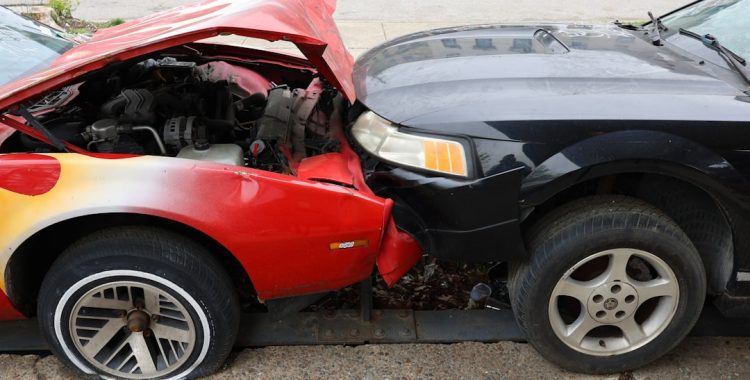From Crash to Cash: Understanding Texas Car Accident Settlements
Why Understanding Car Accident Settlement Texas Outcomes Matters
Car accident settlement Texas amounts vary dramatically, and knowing what to expect can mean the difference between fair compensation and being shortchanged by insurance companies.
Quick Settlement Overview:
- Average settlement: $22,734 for bodily injuries in Texas
- Settlement range: $2,500 to over $4.5 million depending on injuries
- Timeline: 3-6 months for simple cases, over a year for complex ones
- Key factors: Injury severity, medical costs, lost wages, insurance limits
- Texas law: 51% fault rule can reduce or eliminate your payout
- Deadline: 2 years to file a lawsuit from accident date
After a crash, you’re suddenly dealing with injuries, medical bills, and lost income. The settlement process is overwhelming by design. Insurance companies have teams working to pay you as little as possible, leveraging a system you likely don’t understand.
Many people accept the first offer out of necessity, unaware they might be leaving thousands of dollars on the table. This guide breaks down what you need to know about car accident settlements in Texas, from claim value to the final check.
I’m Brian Nguyen, Managing Partner of Universal Law Group. With over two decades of experience as both a prosecutor and personal injury attorney, I have a unique insight into how insurance companies operate and how to maximize your settlement.
What’s My Claim Worth? Decoding Car Accident Settlement Texas Amounts
After a car crash, the first question is always: “What’s my case worth?” The value of your Car accident settlement Texas claim depends on the total impact the crash has had on your life, from medical bills to sleepless nights.

Injury severity is the primary driver of value. A minor injury is valued differently than a life-altering one.
Medical expenses cover everything from the emergency room and surgery to future physical therapy and medications.
Lost income includes missed paychecks and any reduction in your future earning capacity if your injuries prevent you from doing your job.
Property damage covers repairs or replacement for your vehicle and any personal items damaged in the crash.
Calculating pain and suffering is complex. It attempts to quantify chronic pain, emotional distress, and loss of enjoyment of life. An experienced attorney is crucial for maximizing this component. You can learn more about how to calculate pain and suffering to understand these calculations better.
The “Average” Settlement vs. Your Reality
While insurance industry data shows a nationwide average settlement around $20,000, this number is misleading. In Texas, the average bodily injury settlement is $22,734, but this includes everything from minor fender-benders to catastrophic crashes.
Car accident settlement Texas amounts actually range from $2,500 for minor injuries to over $4.5 million for life-changing cases. Your case is unique. Don’t let an adjuster use an “average” to lowball your claim.
Typical Settlement Ranges for Common Injuries
Understanding where your injuries fit can help set realistic expectations. Here’s what we typically see in Texas:
| Injury Severity | Typical Settlement Range in Texas | Description & Factors |
|---|---|---|
| Minor Injuries | $2,500 – $30,000 (often up to $200,000 for specific cases) | Includes cuts, bruises, sprains, whiplash, and mild concussions that typically resolve within weeks or a few months. Settlements for these can sometimes reach higher figures ($50,000-$200,000) if prolonged physical therapy or specific diagnostic tests are required, or if there’s a strong pain and suffering component. |
| Moderate Injuries | $45,000 – $200,000 (can reach $500,000 – $1,000,000) | Involves more serious conditions like broken bones (fractures), herniated discs, torn ligaments, or moderate concussions that may require surgery, extended rehabilitation, or ongoing pain management. The higher end of this range typically involves more complex surgeries or longer recovery times. |
| Severe/Catastrophic Injuries | $500,000 – Several Million ($1,167,808 average for severe) | Encompasses life-altering injuries such as traumatic brain injuries (TBIs), spinal cord injuries, paralysis, amputations, severe burns, or permanent disfigurement. These cases involve extensive medical care, long-term rehabilitation, significant lost earning capacity, and profound pain and suffering, often requiring lifelong care. |
These are just ranges. The final amount depends on how the injury affects your life.
Real-Life Texas Settlement Examples
Real cases show how Car accident settlement Texas amounts can vary:
$4.5 million – Commercial Vehicle Collision: Our client was hit by a delivery truck, suffering severe injuries requiring multiple surgeries. The two-year case resulted in a life-changing settlement due to extensive medical needs and the truck company’s large insurance policy.
$2.3 million – Drunk Driving Accident: A drunk driver ran a stop sign, causing our client multiple bone fractures and hip surgery. The driver’s clear fault and the severity of the injuries led to this substantial recovery.
$750,000 – Rear-End Collision: A “simple” rear-end crash caused our client severe neck and back injuries, preventing them from returning to a physically demanding job. Detailed medical records and persistent negotiation secured this settlement.
These cases show that documentation is everything. Clear evidence of injuries and their impact, combined with obvious fault and sufficient insurance coverage, leads to higher settlements. Each case requires an individual strategy.
The Legal Landscape: Texas Laws That Impact Your Settlement
Understanding the legal rules governing Car accident settlement Texas cases is critical, as these laws directly determine how much money you can recover.
Texas Insurance Requirements and Policy Limits
Every Texas driver must have liability insurance, but the minimum required coverage is often insufficient for serious injuries. Texas requires 30/60/25 coverage, meaning the at-fault driver’s insurance must pay up to:
- $30,000 for one person’s injuries
- $60,000 total for all injuries in an accident
- $25,000 for property damage
If your damages exceed these limits, the insurance company isn’t required to pay more. This is why Uninsured/Underinsured Motorist (UM/UIM) coverage on your own policy is so important. It kicks in when the other driver has no insurance or not enough to cover your damages. The Texas auto insurance guide explains more about your coverage options.
The 51% Bar Rule: How Texas’s Comparative Fault Affects Your Payout
Texas uses a 51% Bar Rule for comparative fault. If you are found 51% or more at fault for the accident, you cannot recover any damages. If you are partially at fault (e.g., 30%), your settlement is reduced by that percentage. For a $100,000 claim, you would receive $70,000.
This is why insurers work hard to shift blame onto the victim. The Texas comparative fault statute outlines this rule, making it crucial to prove the other driver was primarily at fault for your Car accident settlement Texas claim.
The Two-Year Countdown: Texas’s Statute of Limitations
In Texas, you have a strict two-year statute of limitations from the date of the accident to either settle your case or file a lawsuit. If you miss this deadline, you lose your right to compensation forever.
The clock starts on the day of the crash, not when you finish treatment. There are very few exceptions. Because this deadline is unforgiving, contact an attorney as soon as possible to protect your rights and your Car accident settlement Texas claim.
The journey from car accident to Car accident settlement Texas check can be long and winding, but understanding the steps helps you make better decisions.

Critical First Steps After a Texas Car Accident
What you do immediately after an accident can make or break your claim. Here are the critical actions to take:
- Seek medical attention immediately, even if you feel fine. Adrenaline can mask injuries, and delaying treatment gives insurers an excuse to deny your claim.
- Call 911 for any accident with injuries or significant damage. The official police report is crucial evidence.
- Document everything safely. Use your phone to take photos of vehicle damage, skid marks, road conditions, and injuries.
- Exchange information: name, phone, insurance details, and license plate. Get witness contact info.
- Avoid admitting fault. Don’t say “I’m sorry.” Stick to the facts.
- Notify your insurance company, but be wary of giving a recorded statement to the other driver’s insurer.
How Long Does a Car Accident Settlement Take in Texas?
The timeline varies. Simple cases may settle in 3-6 months, while complex ones can take over a year. The main factors are:
- Medical treatment duration: We never settle until you reach Maximum Medical Improvement (MMI) to ensure all future costs are included.
- Disputed liability: If fault is unclear, we need more time to investigate and build a strong case.
- Injury severity: More serious injuries require more documentation and careful damage calculations.
- Insurance company tactics: Insurers often use delay tactics. Under Texas law, they have 15 days to acknowledge a claim and can take up to 45 additional days for investigation after receiving proof of loss.
Settling vs. Suing: What’s the Difference?
Most Car accident settlement Texas cases resolve through negotiation. Filing a lawsuit is a strategic step when insurers won’t offer a fair settlement. It shows we’re serious and allows us to gather more evidence through the findy process.
Only about 4% of personal injury lawsuits go to trial; the lawsuit itself often prompts a fair settlement offer as it increases the insurance company’s costs.
When to Accept a Settlement Offer (And When to Walk Away)
First offers are almost always lowball offers. Insurance companies start low, hoping you’re desperate or unaware of your claim’s true value.
Never accept an offer before reaching MMI. If you settle too early, you can’t ask for more money later if your injuries require more treatment.
Calculate all your damages first. This includes medical bills, lost wages, future care, and pain and suffering. Many people forget about ongoing needs.
Always consult an experienced attorney before accepting any settlement offer. You only get one chance at compensation. We can evaluate the offer and negotiate for the full amount you deserve.
Frequently Asked Questions about Texas Car Accident Settlements
Here are answers to the most common questions we receive about Car accident settlement Texas claims.
Yes, absolutely. Insurance companies actively monitor social media for anything that contradicts your injury claim. A photo of you doing a physical activity or even just smiling at a party can be used to argue your injuries aren’t severe.
The safest approach is to stay off social media or set all profiles to the strictest privacy settings. Avoid posting anything about your accident, injuries, or daily activities. Don’t give the insurance company ammunition to devalue your claim.
What if the at-fault driver has no insurance or not enough?
This frustrating situation is where your own insurance policy becomes critical. Uninsured/Underinsured Motorist (UM/UIM) coverage is designed for this exact scenario, paying for your damages if the at-fault driver can’t.
Personal Injury Protection (PIP) coverage can also help with immediate medical expenses and lost wages, regardless of who caused the accident.
We also investigate whether other parties might share responsibility, such as a manufacturer of a defective car part. These additional sources can make a significant difference in your Car accident settlement Texas.
Are car accident settlements taxable in Texas?
The tax implications depend on the type of damages. The general IRS rule is that compensation for physical injuries is not taxable. This includes money for medical bills and pain and suffering related to those injuries.
However, certain portions of your settlement can be taxable. Lost wages are treated as income, and punitive damages (awarded to punish reckless behavior) are always taxable. Compensation for emotional distress not tied to a physical injury may also be taxable.
We structure settlements with tax implications in mind, but you should always consult a tax professional for specific advice.
Securing the Compensation You Deserve
Navigating a car accident settlement Texas claim is complex. Your recovery depends on the unique facts of your case, the strength of your documentation, and a clear understanding of Texas law. Insurance companies are not on your side; their goal is to pay as little as possible, and their first offer is rarely their best.
You need to act quickly to preserve evidence and meet the two-year legal deadline, but you should never rush into a settlement before the full extent of your damages is known. This is a battle you shouldn’t fight alone.
At Universal Law Group, my experience as a former prosecutor gives us a distinct advantage in fighting for our clients. We know the insurance companies’ tactics and how to build a case that pressures them to pay fairly. We provide the personalized attention you need during this difficult time.
Your future shouldn’t be left to an insurance adjuster. Let us fight for the compensation you deserve. Contact us for a free review of car accident claim value in Texas today to move forward with financial security.






